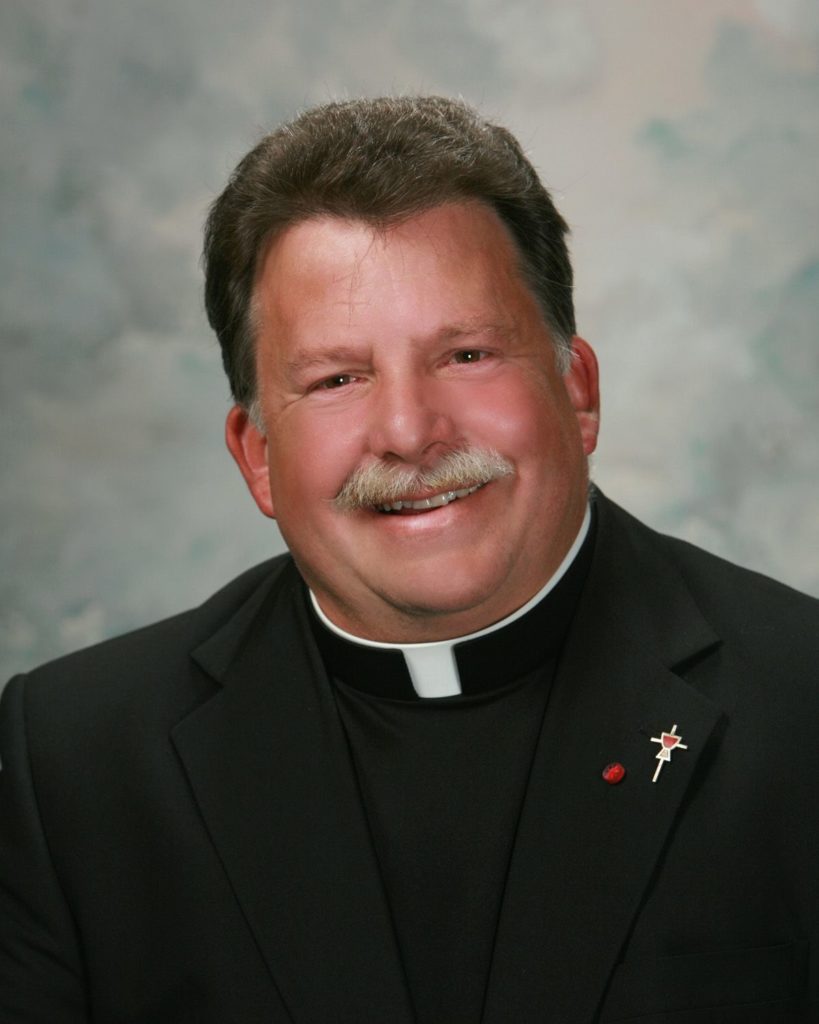By Fr. Tim McFarland, C.PP.S.
Merry Christmas!
Christmas usually brings a flood of memories from our past as we often look back with warm recollections of family gatherings, special foods, gifts being opened, and meals shared with family. The scripture readings for Christmas (using the Mass During the Night) sort of have an opposite trajectory – they look ahead.
In some ways Luke’s infancy narrative (and Matthew’s) can be seen as a Gospel in miniature – a careful reading of this story gives us a “preview” of what Jesus’ life and ministry will be about. There is a great deal of theology contained in this simple story.
Luke begins his narrative describing a census of the whole world, giving us an indication that Jesus’ life, message and mission will not be confined only to the Hebrews, but will be “Good News of great joy that will be for all the people” (Lk 2: 10). Mary and Joseph go to David’s city, Bethlehem (which means house of bread), to be registered. They are rejected from places where travelers stay and have to seek shelter in a rustic stable. Looking ahead, about 33 years later, Jesus also will be rejected by his own as they want to crucify him.
Mary’s nine months of pregnancy are coming to a quick conclusion in a way that she surely did not anticipate. She will give birth to her first-born in a stable surrounded by animals. There was no crib to lay her baby, only a manger—a feeding trough for animals. This shows that Jesus will offer himself a food for us in the Eucharist. I really like the photo above from Chartres Cathedral in France that shows this Eucharistic connection. The manger pictured here is a replica of the altar in the cathedral where Eucharist is offered.
The narrative concludes with the good news of the Savior’s birth being proclaimed to the shepherds keeping the night watch over their sheep. Shepherds were considered outcasts of the time and the Good News was first proclaimed to them. In a similar way Jesus will reach out with Good News to those who are considered outcasts in his time. Like the shepherds who watched over their flock, Jesus will watch over and care for all people. All are accepted and included in God’s redemption and salvation. Jesus will also later be known as the Good Shepherd.
Matthew’s infancy narrative includes the three magi from the East bearing gifts of gold, frankincense and myrrh. These symbolic gifts might again be seen to indicate Jesus’ future. Gold meant riches, generally associated with royalty; Jesus will be seen King of the Universe. Frankincense was used by the priests in offering sacrifice and worship to God; Jesus will offer himself as a sacrifice to God. Myrrh was an ointment used to prepare the bodies of the dead; this ointment will be later used by the women to anoint Jesus’ body following his death.
So, in addition to the warm memories we share with others this Christmas day, let’s allow the reading to push us forward in trying to make the Word become flesh in our lives at this time.
![]()

Fr. Tim McFarland, C.PP.S., is currently a chaplain for the Franciscan Hospitals of northwest Indiana. He previously was a professor of religion at Saint Joseph’s College in Rensselaer, Ind., for over 30 years.

